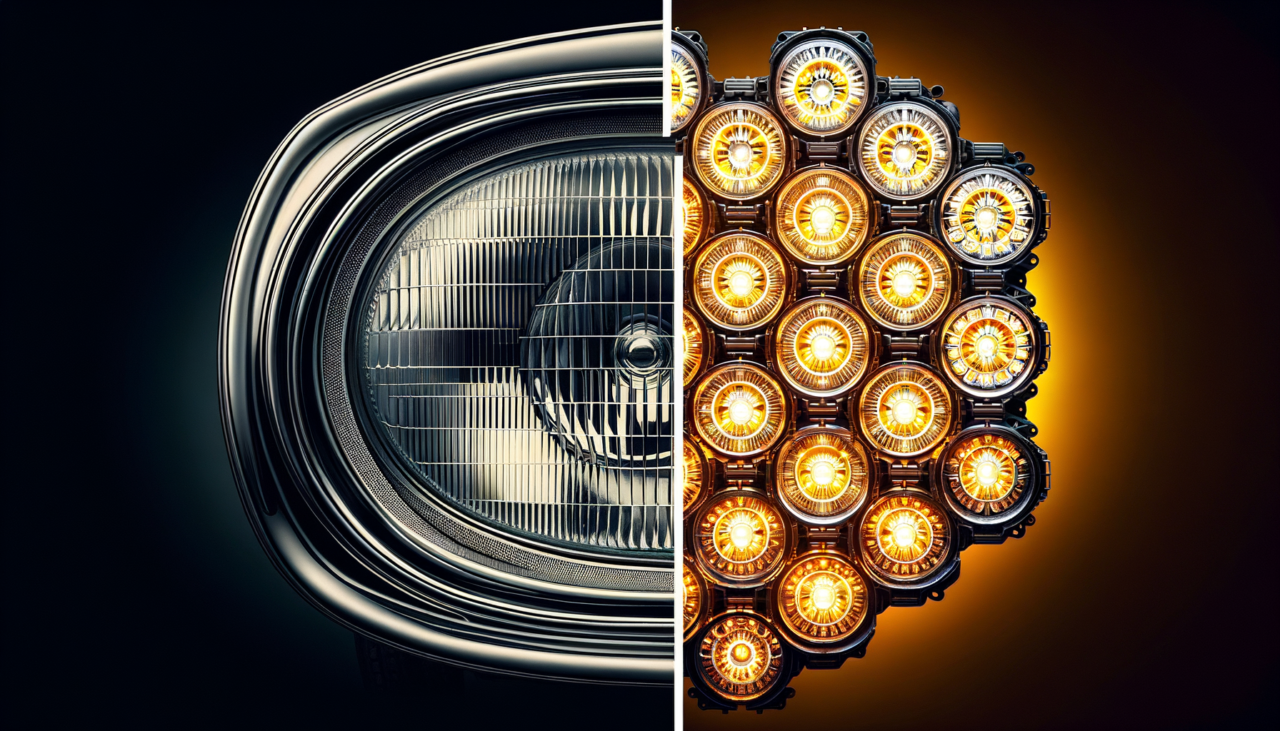Introduction
In the ever-evolving landscape of automotive technology, headlights are no exception. As drivers, our priority is clear vision and safety on the road, especially during night drives. But with so many options available, how do you choose the right headlights for your vehicle? Today, we dive into an illuminating comparison: Traditional vs. Matrix Headlights.
Picture this: You’re driving down a winding road on a moonless night. The world outside your car is a shadowy blur, and you rely on your headlights to navigate safely. This is where our contenders come into play, each bringing its own set of strengths and quirks to the table. Let’s delve into their characteristics and see how they stack up against each other.
Characteristics of Traditional Headlights
Traditional headlights, often halogen or LED, have been lighting up our roads for decades. They’re the dependable old friend of the automotive world, offering simplicity and reliability. Here’s what you need to know:
- Cost-Effectiveness: Traditional headlights are generally more affordable, making them a popular choice for budget-conscious drivers.
- Ease of Replacement: These lights are widely available and simple to replace, ensuring convenience if you ever find yourself with a blown bulb.
- Brightness and Range: While they provide adequate illumination, they lack the precision and adaptability of newer technologies.
- Energy Efficiency: LEDs are more energy-efficient than halogens, but both traditional options typically consume more power than their matrix counterparts.
- Durability: Halogen bulbs have a shorter lifespan compared to LEDs, which can last for several years.
Characteristics of Matrix Headlights
Matrix headlights represent the cutting-edge of automotive lighting technology. They’re the sleek, futuristic competitor in our comparison, offering advanced features that seem to belong in a sci-fi movie:
- Adaptive Lighting: Matrix headlights can automatically adjust their beam patterns to avoid dazzling other drivers while maintaining optimal illumination on the road.
- Precision and Control: With the ability to control individual LED segments, matrix headlights provide unparalleled precision, highlighting obstacles and improving visibility in challenging conditions.
- Energy Efficiency: These headlights are designed to be highly energy-efficient, consuming less power while providing superior illumination.
- Durability and Longevity: Matrix headlights are built to last, often outliving traditional lighting options due to their advanced LED technology.
- Higher Cost: The advanced technology and features come at a premium, making matrix headlights a significant investment for most drivers.
Comparative Table: Traditional vs. Matrix Headlights
| Feature | Traditional Headlights | Matrix Headlights |
|---|---|---|
| Cost | Affordable | High initial investment |
| Ease of Replacement | Simple and widespread | Requires specialized service |
| Brightness and Range | Adequate but less precise | Highly precise and adaptable |
| Energy Efficiency | Moderate (LED better than halogen) | High energy efficiency |
| Durability | Halogen: Low, LED: Moderate | High, with extended lifespan |
| Adaptive Lighting | No | Yes, with individual LED segment control |
Conclusion
Choosing between traditional and matrix headlights ultimately depends on your priorities and budget. If you value simplicity and cost-effectiveness, traditional headlights are a reliable choice. However, if you crave cutting-edge technology and superior performance, the investment in matrix headlights can enhance your driving experience significantly.
In the grand theater of automotive advancements, both headlight types have their roles to play. Whether you prefer the classic appeal of traditional lights or the futuristic allure of matrix technology, the choice is yours to make. Remember, in the realm of headlights, clarity and safety are the ultimate goals, guiding you through every twist and turn on the road ahead.
Engage with us in the comments below: Which type of headlights do you prefer? Share your experiences and let’s shed some light on this topic together!

Comments (0)
There are no comments here yet, you can be the first!